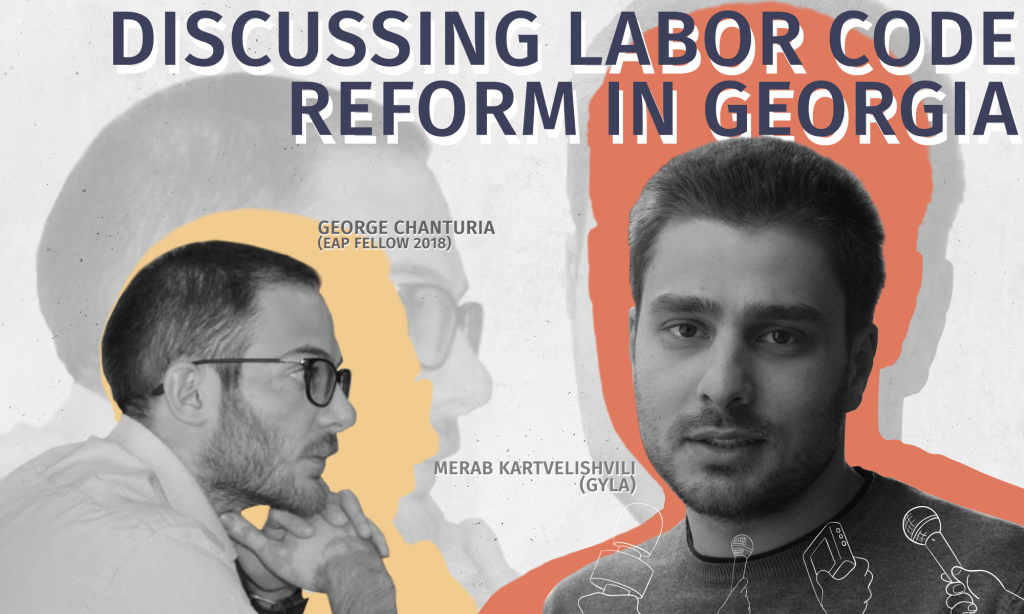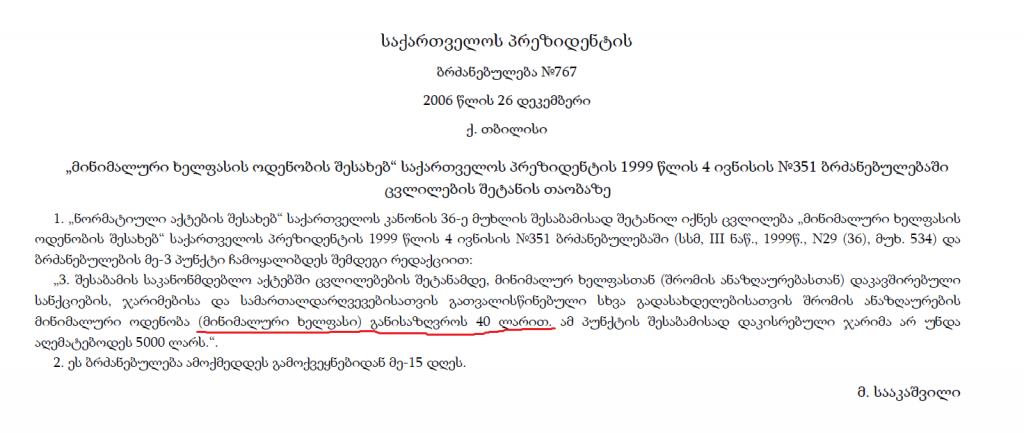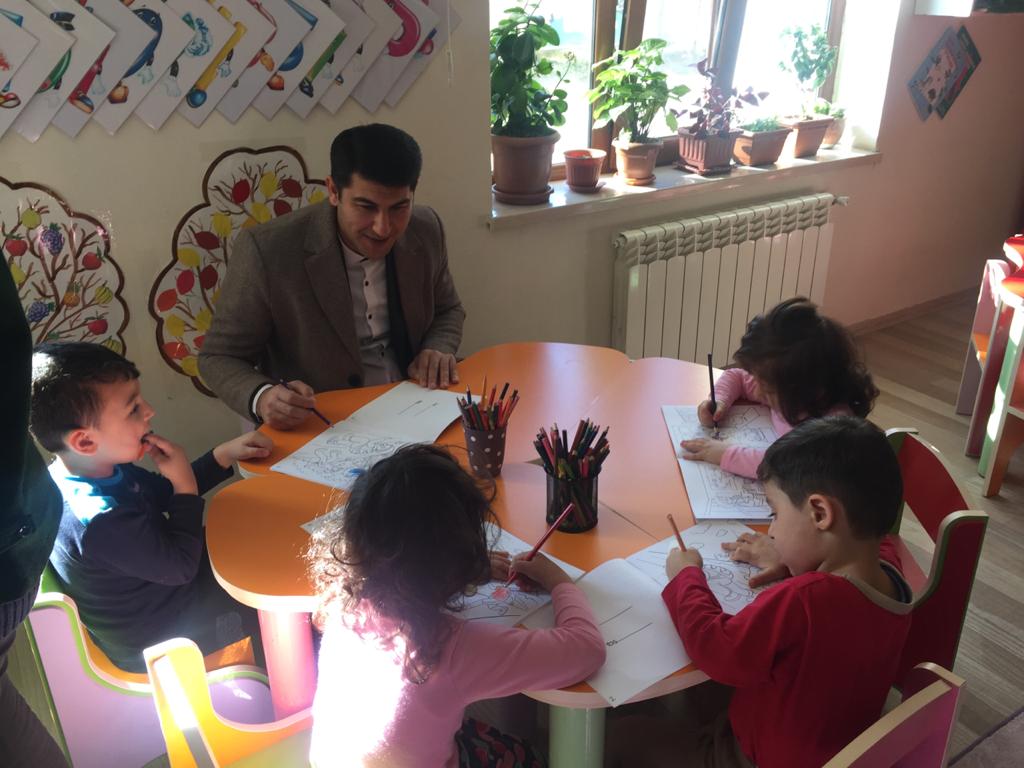by George Chanturia, Local Correspondent from Georgia.
It is the year 2006, a cold day of December 26th. The president of Georgia, Mr. Mikheil Saakashvili signs the degree N767 which says that the minimum wage in the country should be GEL40 (Euro 11.5).
(Not) surprisingly, not much has changed since then and that statement is still there is the decree. Obviously it the symbol of policy of the country. However, today, a draft bill on labor code is submitted to the Parliament of Georgia which is a major game-changer in that direction. “If adopted, the amendments would offer much greater protection to workers and go a long way toward bringing Georgia’s labor legislation in line with international standards and good practices.”[1]
One of the major advocates of the change are the civil society organizations (CSOs) such as Georgian Young Lawyers Association, the Human Rights Education and Monitoring Center (EMC) and Open Society Georgia Foundation.
The good news is that on July 13, the Health Care and Social Issues Committee approved the Draft Organic Law on Labor Code with the first reading. However, according to EMC and GYLA, “unfortunately, the initiated package of bills still does not envisage the ceiling of overtime working hours, does not offer comprehensive grounds for termination of the contract, does not introduce the right to solidarity strike or paternity leave, leaves extremely low maternity leave reimbursement and remains unfulfilled in other directions.”[2]
Even though I am personally very passionate about this topic and try to read a lot, I thought it was a good idea to talk to the very people who are much more qualified and work solely on these issues. That is why, I reached to GYLA and discussed this topic with their human rights program director Mr. Merab Kartvelishvili.
 GC: Can you briefly describe the history of labor code in Georgia so that readers have a better understanding of what we are talking about?
GC: Can you briefly describe the history of labor code in Georgia so that readers have a better understanding of what we are talking about?
MK: Well, when we talk about labor code, one has to understand that since 2006 massive deregulation took place in this direction. That was the conventional wisdom for the previous government. Almost all the guarantees and defensive mechanisms in terms of workplace justice were eliminated. Labor inspection, which was weak itself, was abolished instead of empowerment. International treaties and obligations were not taken into consideration and so forth.
This lasted for quite some time until the new government took over in 2012. The Georgian Dream started the reforming process in 2013. That had to be done if we wanted to sign the EU-Georgia Association agreement. When the association agreement was signed in 2014, more active work started with regards to labor rights. These are obligations that we, as a country, have to fulfill. More specifically, “Article 229. Multilateral labor standards and agreements” discusses all these issues, including International Labor Organization’s (ILO) standards and conventions.
Long story short, in 2015, Labour Conditions Inspection Department was created. However, they had very limited power such as not having sanctioning mechanism. In 2019 these mandate was given to the department but only with regards to labor safety. Now, they could sanction as well as inspect without notice. But, they need employer’s permission with regards to labor rights.
GC: It is interesting, who are the ones doing that, meaning inspection and monitoring. It is a very important and responsible job. Do we have sufficient amount of people who are competent enough to do that?
MK: Well, currently the number of labor inspectors is very low – approximately 40. According to international standards the number should go twice as high (80-90). However, job openings were announced in May and I believe that soon we would have about 100 labor inspectors that would undergo special training program to be ready for the job.
GC: Very Good. Let’s move to the processes that is going on right now.
MK: Well in 2019, a group of MPs led by Dimitri Tskhitishvili started working on the labor reform. In the beginning, they had all the international support from donor organizations such as GIZ, USAID, UNDP and others. As well as from ILO and EU, obviously. In the beginning, the work was very active, very progressive steps were taken, e.g. with regards to maternity leave when the state was supposed to pay 80% of the salary to the employee and the 20% was up to the employer. Unfortunately, these kind of articles were removed from the draft law.
 Another interesting point is about the minimum wage. Unfortunately, the state still does not have any vision about that and still, we have GEL40 (Euro 11,5) as a minimum. Which, as you would agree, is nothing.
Another interesting point is about the minimum wage. Unfortunately, the state still does not have any vision about that and still, we have GEL40 (Euro 11,5) as a minimum. Which, as you would agree, is nothing.
More importantly, the current law settles the terms with regards to discrimination including about the people with special needs, e.g. what is direct or indirect discrimination and so forth. Terms are very important.
The law also tries to regulate simple things such as having a one day off in a week or having a 12 hour break if a person works in 12 or 24 hour shifts or even an hour break after six hours of work. So, these are basic things that were not guaranteed before. Another example is overtime work. The only remark in the draft law is that is that people working in risk-related jobs cannot have more than 8 hours of overtime (e.g. metro, miners etc.). Besides, according to the current regulations, overtime work has to be compensated more which is very abstract and employers paid symbolic amount of money. For instance, if you had GEL10 per hour, you would get Gel 10,01. Because of that reason, the draft low offers +125% increase. So, in our example, you would get Gel 12,5.
GC: Very promising. What does the business/private sector say about it?
MK: This is one of the issues that is harshly criticized by the private sector. They are saying that if we do that, we would have to pay GEL250 million only in three sector. That is why, we are saying it is a stolen salary. Let me explain what I mean.
If a person goes to the court to receive his/her overtime payment, the court would rule for either 125% or 150% remuneration. That is the standard of the court of law today. However, the employees are unable to do so because they have to pay for the court, some customs fee and so forth. These sort of bureaucracy and lack of awareness hinders that. That is why, if this standard would be translated into the legislation, the private sector would have to pay that money.
GC: Quite extraordinary, one would say but for me it is not really surprising as we all know the conditions people are working in. In that regard, what would be the role of the labor inspectorate?
MK: That is the most important aspect of it. The draft law would increase its mandate which will be an important step towards effective enforcement of labor rights. In other words, they would be able to check all the above-mentioned e.g. overtime, to monitor and sanction, if necessary. So their mandate would be not only to check labor safety but labor rights, as well. All that would be more of a preventive mechanism to ensure labor rights are upheld.
GC: Well, as we know laws can look and sound beautiful. What about enforcing them?
MK: Good point. The department that is under the Ministry of Health, Labour and Social Affairs of Georgia would be transformed as an independent legal entity which would be the major responsible body for inspection, monitoring and enforcement, as well. Currently, the commission, which is comprised of employer’s association, labor unions and the ministries, is working on statute that would say all the procedures and preconditions on when the labor inspectorate can check this or that co0mpany.
GC: If we move to the end, some people are nervous that the state would use labor inspection as a tool for the state to strengthen its control over the companies. Especially, the country such as ours, with its history of total centralization of power. What would be your arguments to this sort of fear?
MK: Well, generally speaking, those sort of fears are understandable when we are talking about fragile democracysuch as Georgia. However, workers cannot be hold accountable and suffer because of those fears. One has to understand that the inspection is a preventive mechanism than a punishment tool. There are more than 200 thousand private sector entities and we have 90-100 inspectors. It would be very difficult for them to check each and everyone of these entities. Therefore, once again, the labor inspector plays a role of preventive mechanism rathen than doing something post-factum.
If we are speaking about controling this or that company, believe me, the role and mandate of labor inspector is far less those of the police or State Inspector’s Office.
GC: And lastly, obviously, this is a long process and much needs to be done. What is the role of CSOs in all that?
MK: Of course, it is important for CSOs to be active and supportive to this process and at least partially balance the unequal attitudes that exist between employees and employers.
However, these goals will not be achieved if workers themselves fail to organize and fight for their rights. So far, if we look at our history, the government almost never listens to the workers, instead they only hear and listen to the business. That is why the main goal for CSOs should be supporting workers in terms of capacity building and awareness raising so that they can better protect their rights.
[1] Human Rights Watch. www.hrw.org
[2] EMC AND GYLA CALL ON THE PARLIAMENT TO CARRY OUT A LABOR REFORM. Avalaible at: https://bit.ly/2ZzJ3SY
This article was produced by George Chanturia, the Project’s local correspondent and EaP Civil Society Fellow from Georgia in the framework of the EU-funded ‘Eastern Partnership Civil Society Facility – Regional Actions’ Project. Its contents are the sole responsibility of George Chanturia and do not necessarily reflect the views of the European Union or the Project. The photos are provided by the Local Correspondent.
Read more about our local correspondents here.




